Investing in gold is a great way to protect and grow your wealth. Whether you’re looking for short-term profits or long-term financial security, buying gold can be an excellent choice for investors of all levels, whether you are a newbie or have been investing for decades. However, one important factor for the success or otherwise of your gold investment portfolio is the gold investment company that you choose to deal with. Whether you want to buy physical gold, pure gold jewelry, gold futures, gold ETFs, gold bars, or gold stocks, my #1 recommendation is Augusta Precious Metals.

We earn a commission if you make a purchase, at no additional cost to you.
With so many options available when it comes to investing in gold, from physical bullion coins and bars to exchange-traded funds (ETFs), there's something out there that meets the needs of any investor. In this blog post, we'll explore the benefits of buying gold, the different types of investments available, how to buy it safely and securely, as well as its tax implications - everything you need to know before making your decision about whether or not to invest in this precious metal. Listen to quarterback Joe Montana share his experience with Augusta Precious Metals and why his financial advisors believe that the precious metal company is the best of all the gold mining companies out there. So if you're ready to launch into the world of golden opportunities with confidence – read on.
How to Buy Gold
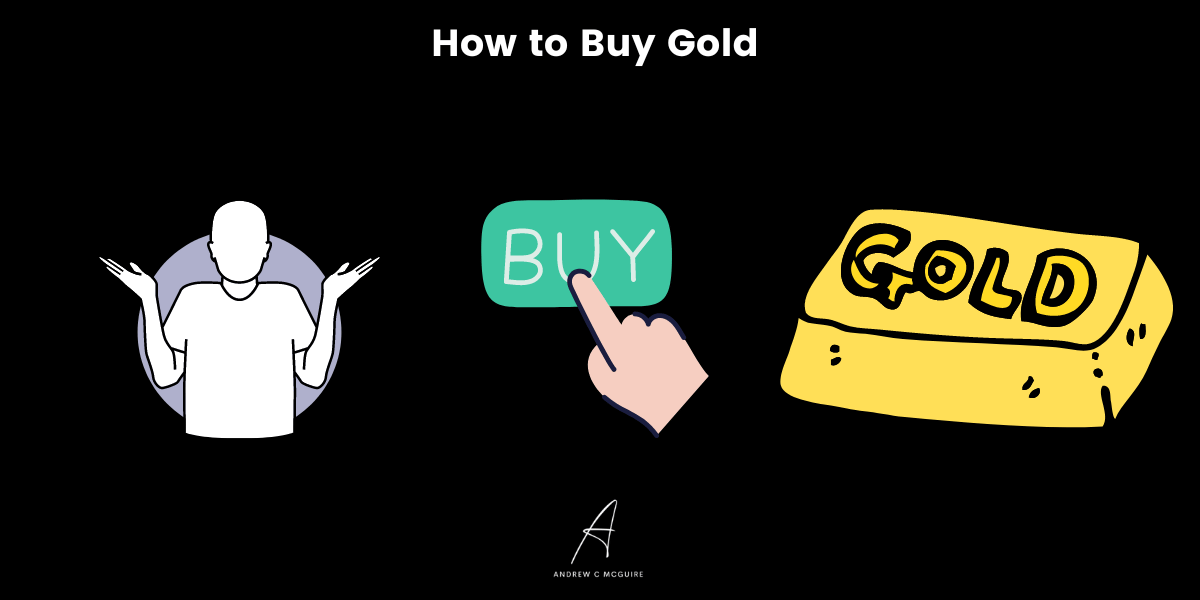
1
Find the Right Dealer/Brokerage Firm
When it comes to buying gold, research is key. It’s important to find a reputable dealer or brokerage firm that has experience in the precious metals market and offers competitive prices. Do your due diligence by reading reviews online and asking for references from other investors who have used their services before.
2
Work with an Investment Goal and Budget
Determine your investment goals and budget prior to shopping around for gold investments. Consider how much risk you are willing to take on, what type of return you expect, and how long you plan on holding onto the gold, as these factors will influence which type of investment is right for you.
3
Determine the Right Form of Gold for You
There are several different forms of gold available for purchase, including physical bullion and coins, exchange-traded funds (ETFs), precious metals IRAs, mining stocks and mutual funds, as well as collectible coins and bars. Each option carries its own set of risks so ensure that you to do your research before investing in any one form over another.
4
Check Out Fees and Charges
Finally, understand all fees associated with buying gold, such as commissions charged by dealers or brokers, taxes imposed by governments at both the federal level in the US or provincial level in Canada, depending on where you live, storage costs, if applicable, insurance premiums if necessary, etc. Make sure that all costs associated with purchasing gold fit within your budget so that there are no unpleasant surprises down the road.
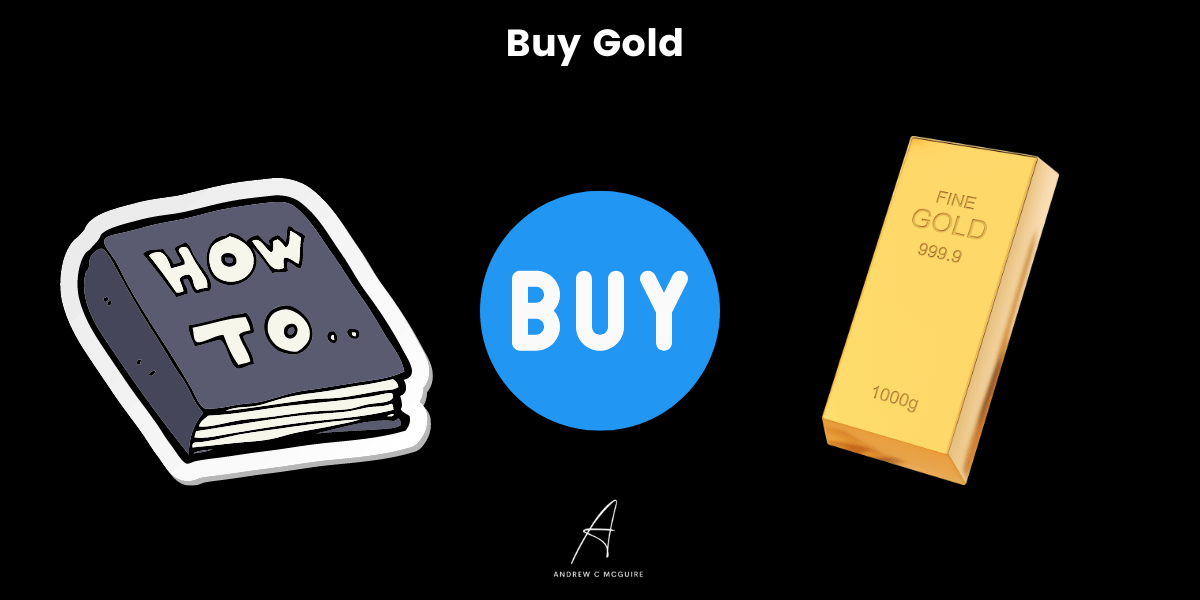
Buying gold can be an effective way to diversify your portfolio and protect your wealth. Now that you know the process of buying gold, let's look at some storage options for physical gold investments.
Storage Options for Physical Gold Investments
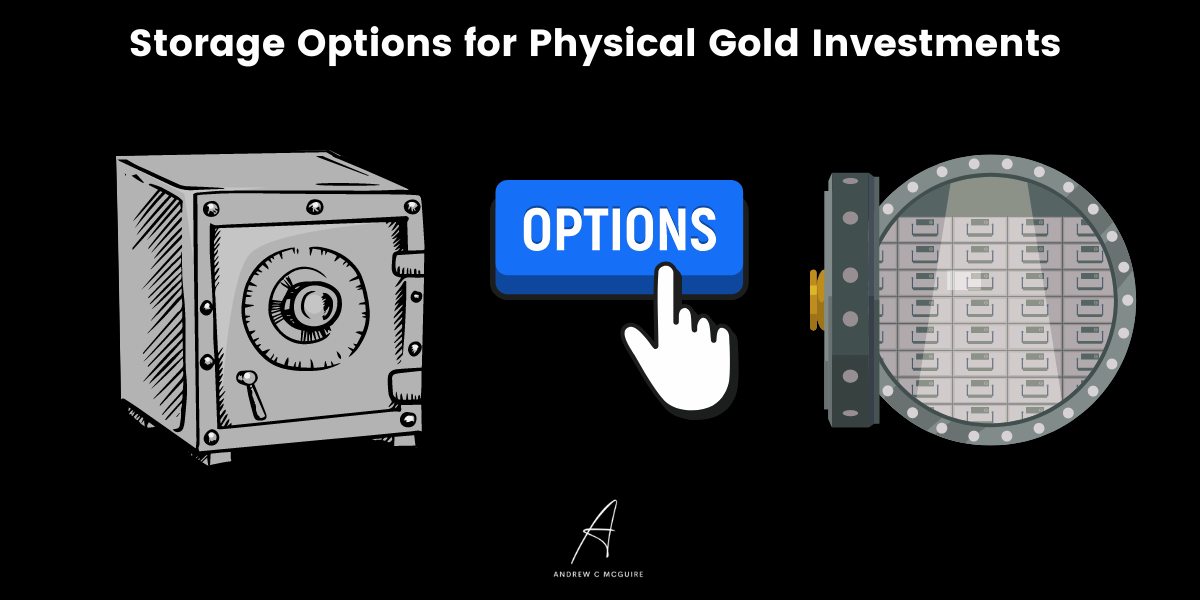
When investing in physical gold bullion or coins, it is important to consider storage options. Home storage solutions are the most cost-effective and convenient option for many investors. These can include a home safe, fireproof lockbox, or other secure location that offers protection from theft and damage. However, these solutions may not provide adequate security against natural disasters such as floods or fires.
1
Bank Vaults
Bank vaults offer more comprehensive security than home storage solutions but come with additional costs and potential risks associated with storing your gold at a financial institution. Bank vaults typically have 24/7 surveillance and multiple layers of security to protect your investments from theft or damage from natural disasters. However, banks also charge fees for vault services which can add up over time if you choose this option for long-term storage of your gold investments.
2
Third-Party Storage Facilities
Third-party storage facilities are another popular choice among investors looking for secure options when buying physical gold bullion or coins. These facilities offer professional vaulting services that provide maximum security against theft and natural disasters while also offering competitive rates compared to bank vaults. Additionally, some third-party storage facilities even offer insurance coverage on stored items so that you can rest assured knowing your investments are protected in case of an unforeseen event, such as a flood or fire damaging the facility itself.
Physical gold investments require secure storage solutions, such as home storage, bank vaults, or third-party facilities. Knowing the various options available is important when considering investing in gold. Next, we will discuss the tax implications of investing in gold.
Tax Implications of Investing in Gold
Investing in gold can be an effective means to diversify your investment portfolio and safeguard your wealth. But it’s vital to understand the tax implications of investing in gold before you make any decisions. Capital gains taxes are probably the most common taxes associated with buying and selling gold, so understanding how they work is essential for successful investing.
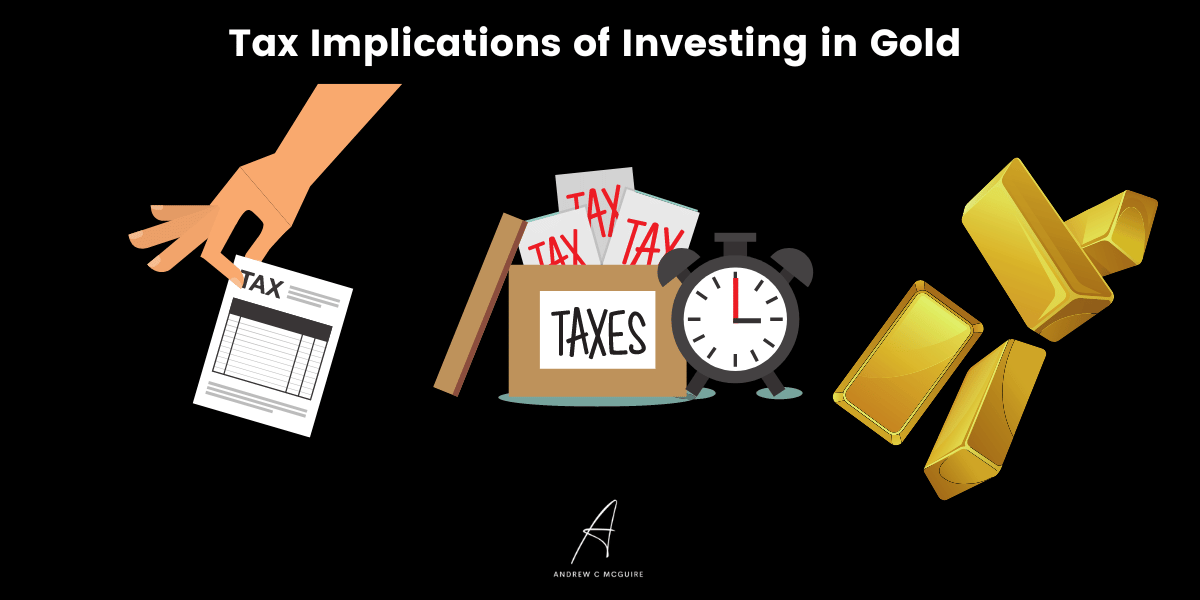
1
Capital Gains Tax on Profits from Selling Gold
When you sell physical gold or coins, such as bullion bars or coins, you may have to remit capital gains tax on profits made from the sale. The amount of tax owed depends on several factors, including whether the asset was held for more than 12 months (long-term) or less than 12 months (short-term). Long-term capital profits are taxed at a lower rate than short-term capital gains, so it pays to hold onto assets longer if possible. Additionally, if you buy back an asset within 30 days after selling it then no capital gain is due since this would be considered a “wash sale” under IRS rules.
2
Lower Annual Tax on Gold IRA
Investing in precious metals through an IRA account can provide some additional tax advantages compared to other types of investments. For instance, contributions made into an IRA may be eligible for deductions depending on one's income level and filing status; this could potentially result in a reduction of taxable income and lower taxes paid annually. Furthermore, withdrawals taken from a traditional IRA during retirement will not incur any immediate taxation until the funds are used outside of the plan; thus providing investors with greater flexibility when planning their retirement finances since they don't need to pay taxes upfront upon withdrawal like many other investment accounts require them to do.
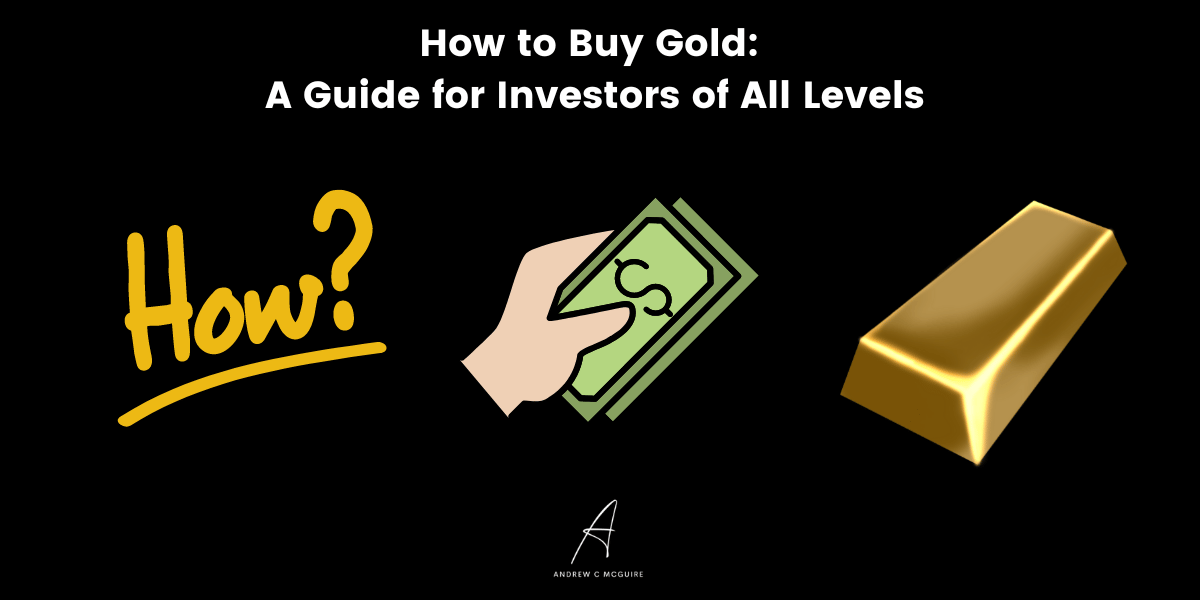
Conclusion
There are many different types of gold investments available, from physical gold coins and bars to ETFs and other paper assets. When you decide to buy gold, it is important to consider the storage options for physical investments as well as the tax implications associated with such an investment. Ultimately, investing in gold can be a wise decision if done correctly. With careful research and due diligence on the part of the investor, buying gold can be a safe and secure means to invest in precious metals.
FAQs
The Barron's Pick

Augusta Precious Metals is the most trusted gold IRA company
